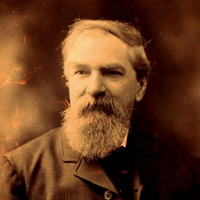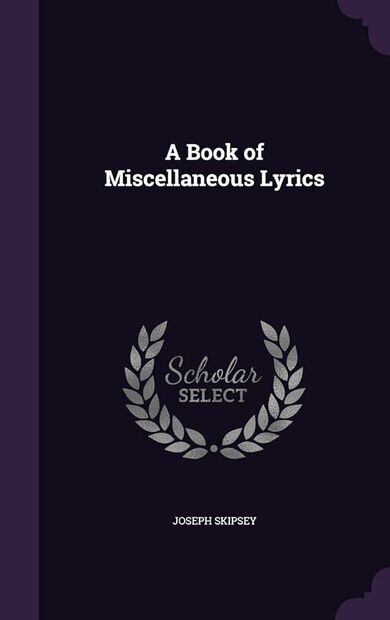The Death of Cleopatra
I GO—from all earth can give, riven
By fate’s sternest mandate—so—so,
A Queen in a fiery car driven,
To meet her god-lover—I go.
That blissful reunion to hasten,
Hie, hie, with the worm to my breast;
And here let its fatal lips fasten—
On here where a god’s head would rest.
Here, here let it suck and be suckled,
On what hath this pallid cheek dyed,
When on his fell weapon I’ve buckled,
And frolic-mad mimicked his stride.
That golden day’s vanished, yet, clingeth
One hope to the fallen one,—nay,
A lay in the murky cloud ringeth,
And dances her heart at that lay.
“Even yet will she meet with his olden
Blink” rings that sweet music;—“her love,
Whose smile will make Hades more golden
Than Jove’s gilded palace above.
“Even yet will she thrill with the glory
That stream from his looks, as she’d thrill;
And hear from his tongue the sweet story
Of what she once was—and is still!
“A Queen is she not, who o’er victors,
A victor hath trodden, while Kings
Would smile on her prætors and lictors,
And gift their attendants with rings?
“And so in the far future ages,
Some poet will chant to the throng;
And Rulers, and Heroes, and Sages,
An echo return to the song.
“Then spirits Titanic shall wonder
At one who o’er nations would reign,
As if the dread bolt of the thunder
Had danced in delight in her train.
“As if Jove himself had forbidden
All ill thro’ her portals to tread,
And here would on lightning have ridden
To save a small hair of her head.
“A god-guarded women, they’ll hold her;
A god-illumed soul—and aright!
Ay, where were the eyes could behold her,
And not in her glory delight?
“Her graces a Pompey would dazzle;
A Cæsar his faulchion would sheath,
Their vassal to be—and their vassal
Shall now be the victor-king—Death.
“Her body will perish, but rarer
The spirit that gilds it will gleam,
And to her own Marcus yet fairer
Whatever seemed fairest, will seem.
“The sun-soaring bird afire flashes
A wreck to the wonder-bound earth;
But up the next hour from its ashes,
Again the sun-scaler goes forth.
“A Phœnix the Phœnix succeedeth;
So up from the dust doth she spring,
And go in a lustre that feedeth
With rapture the eyes of her King.
“His star, from his burnished throne yonder,
He sees, as he saw her of old,
A-far on the Cydnus—a wonder,
That turns the black Styx into gold.
“And hers he is still.”—Thro’ my anguish,
Thus rings that sweet voice in my ears:
And not in her sorrows may languish
The soul which such harmony hears.
That voice, at its sound I’m uplifted,
Nor feel as I’ve felt, weak and worn;
That voice at its music I’m gifted
With strength yet the foeman to scorn.
The Roman may giggle, the Roman
May sound his brass timbrels in mirth
Shall he make a mock of the woman
Erewhile the delight of the earth?
Shall she to the seven-hilled City
In triumph be hurried in deed?
No, no, from their laughter or pity,
Ah, see by the viper she’s freed.
Freed, free is her spirit and given
Power—“longings immortal”—and oh!—
A Queen in a fiery car driven
To meet her god-lover, I go.


